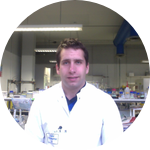About This Project
Biological nanoparticle synthesis methods have emerged as a potential alternative to traditional methods due to their lower environmental impact and moderate synthesis conditions. However, these nanoparticles are not uniform in size which is holding back this technology from real world applications. We aim to stimulate microorganisms to increase the synthesis rate and the uniformity of silver nanoparticles produced.Ask the Scientists
Join The DiscussionWhat is the context of this research?
Metal nanoparticles due to their small size are becoming incorporated into many aspects of our lives. Gold nanoparticles can be used in diagnostic devices to detect diseases such as cancer. Silver nanoparticles can be incorporated into fabrics for their antimicrobial properties, while titanium dioxide is included in sunscreens due to their UV absorption.
The conventional methods to produce these nanoparticles however, use potentially hazardous compounds and/or extreme synthesis conditions (such as high temperature or pressure), which raises the cost of their synthesis and concerns about their environmental impact.
Other methods can be complex and lead to unrepeatable results. A cheaper and greener method is needed to improve the viability of this technology.
What is the significance of this project?
In the last 14 years many micro-organisms have been demonstrated to produce metal nanoparticles as a defense mechanism against the toxic actions of the metal ions in solution.
These methods do not require the addition of potential harmful compounds, as the microbe produces both reducing agent and capping ligand. Further, due to the high specificity of the interaction between the biomolcules and the inorganic template, the reaction can take place at room temperature and the procedure is easy to follow.
Although this method addresses the problems of the conventional methods, the nanoparticles produced are not of a uniform size. As the properties of the nanoparticle are dependent on their size, this is holding back the biological methods from academic interest to real world applications.
What are the goals of the project?
The goal of this project is to produce uniform silver nanoparticles using electrochemically stimulated Shewanella sp biofilms. Our research will examine the effect of the working electrode material, the species of Shewanella, growth conditions and the applied electrochemical potential. Further we will optimize these parameters to improve silver nanoparticle uniformity.
Budget
If we reach our target and get funded, we will use the funds to purchase the working electrode materials. We will also use these funds to thoroughly analyze the silver nanoparticles produced.
Meet the Team
Team Bio
Graduating in 2012 with a First Class Honors in Biotechnology from Dublin City University, Michael was awarded an IRCSET (IRC) Embark Initiative PhD Scholarship. His PhD research project is about improving the biological synthesis of metallic nanoparticles using electrochemically stimulated Shewanella biofilms. Further he is researching producing gold nanoparticles using endothelial cells as a possible cancer treatment.Michael is also a very sporty researcher. Playing both Austraillia Football with the College and Gaelic Football with his club Parnells GAA.
Additional Information

The Bioelectrochemistry group working hard at the Society for Industrial Microbiology and Biotechnology Annual Meeting in St. Louis
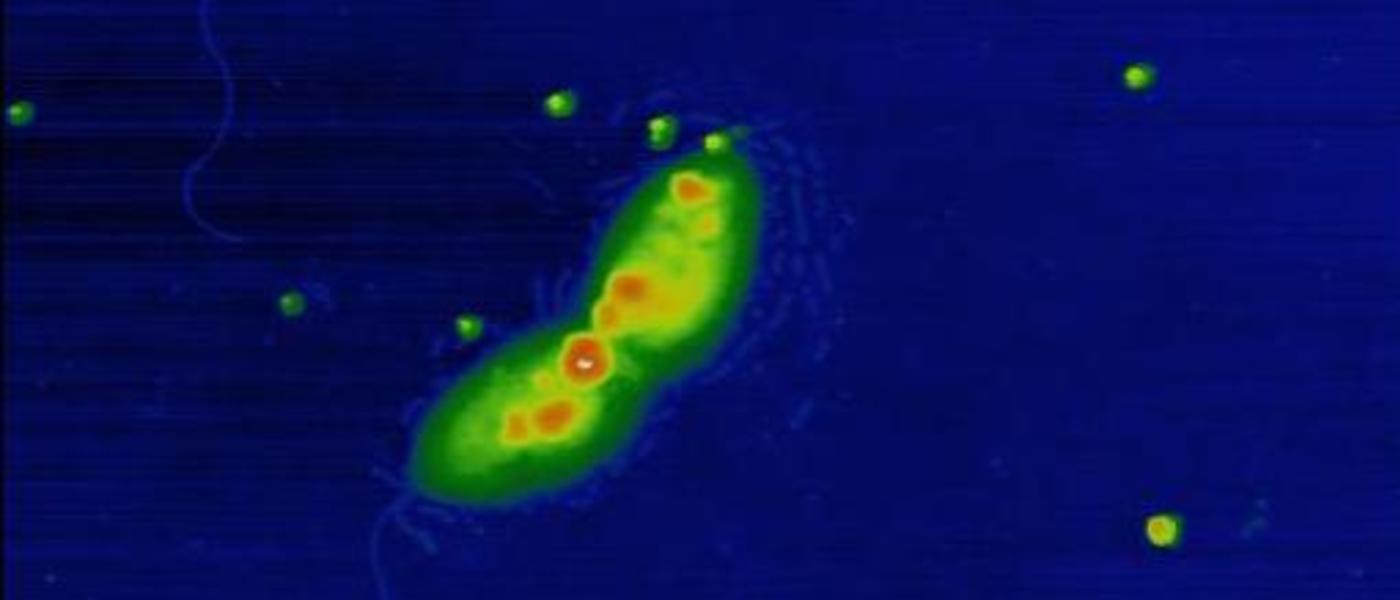
Atomic force microscopy image of Shewanella loihica PV4 cell with silver nanoparticles.
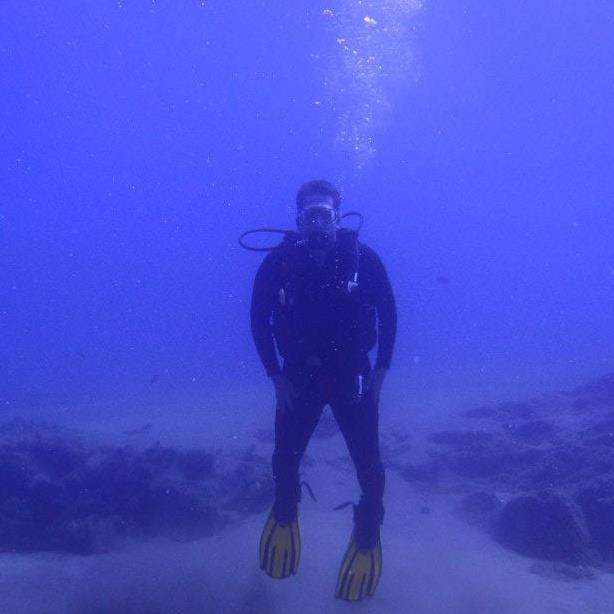
Michael sinking to new depths on his holiday in beautiful Lanzarotte!

Preparing for a match, Michael lines out with the Dublin Demons!
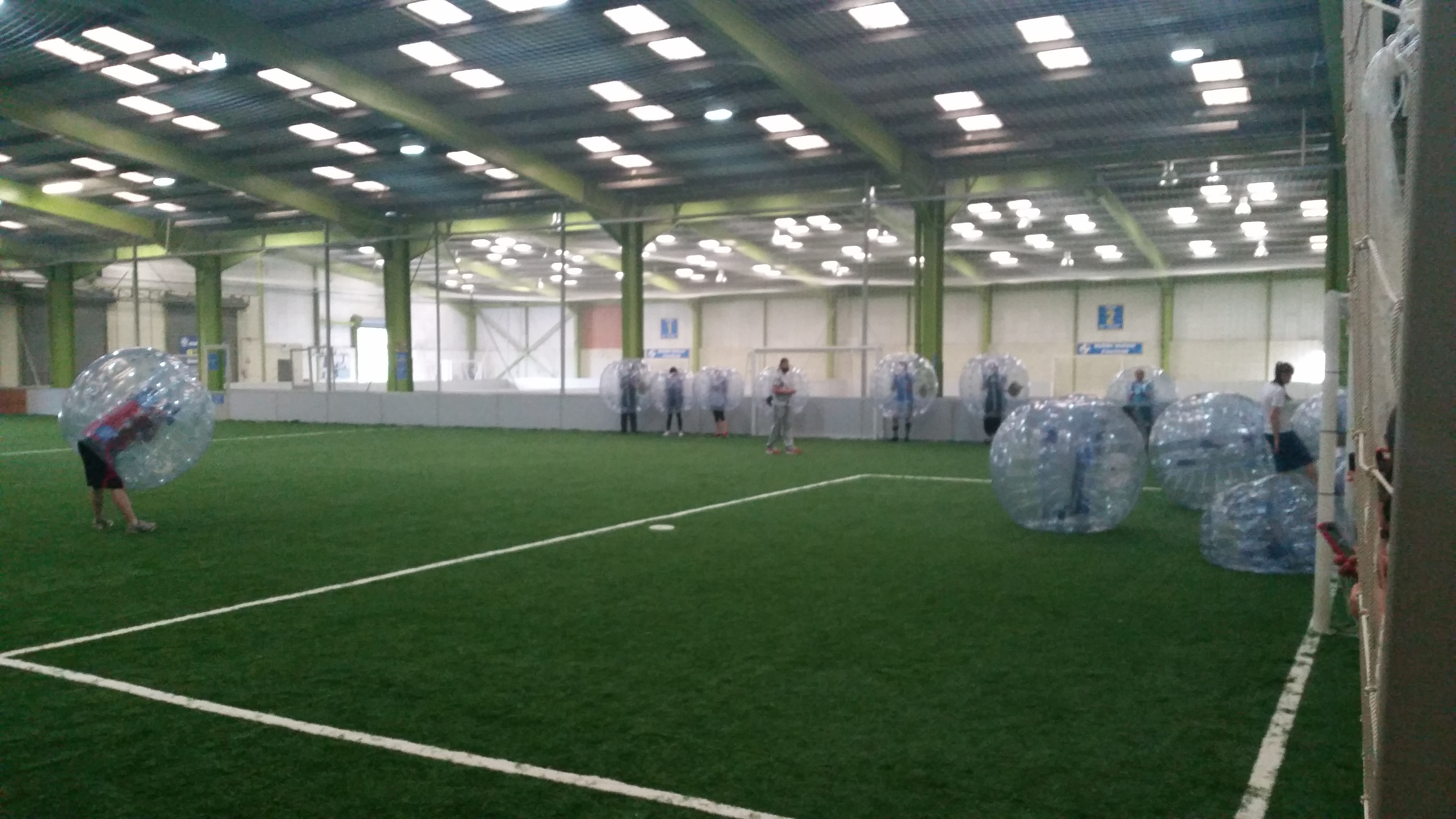
All work and no play, makes Jack a dull boy. The Vascular Biology and Therapeutics Group play some bubble football!
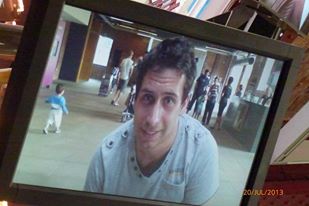
Michael in the Manchester Science Museum on the DCU Biological Research Society trip
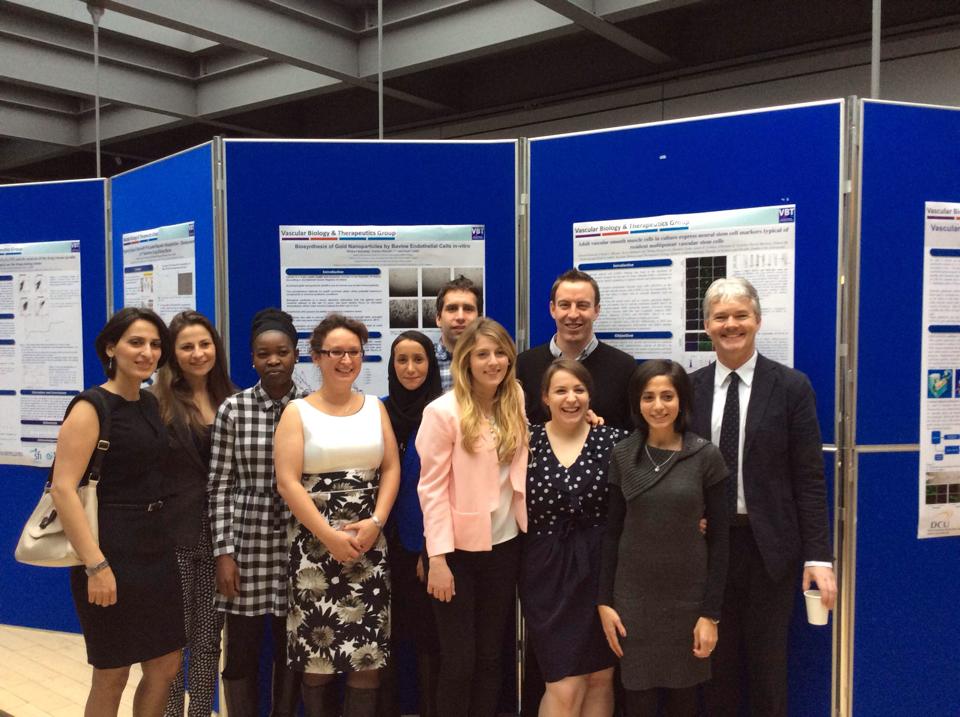
A cheerful Vascular Biology and Therapeutics Group post SFI audit!
Project Backers
- 5Backers
- 8%Funded
- $150Total Donations
- $30.00Average Donation
